Many people have no time to study and memorize countless chess opening strategies from various chess openings because they have to work all day.
I have thought about this problem for a long time and finally a new idea came up in my mind, a new approach, where you have to study only ONE opening set up! Yes, unbelievable, but true, just ONE opening system.
PLAY ONE SET UP (the b6 Set Up as Black and the b3 Set Up as White)
I am saying that you use the same opening approach for White AND Black. This saves you a lot of time.
This allows you to use the knowledge you have gained, playing the black pieces and apply this wisdom to the games, where you play the white pieces and vice versa. It can be done as the opening structure is similar and the first moves are the same, no matter if you have White or Black.
When you play this system with White, then you have one additional move, that you can put to good use.
And the good thing is, you don’t have to memorize countless opening lines, but play positional chess, where you have to understand key concepts.
This means, common sense concepts are applied, like weak squares, the two bishops, bad bishop, good bishop, damaged pawn structure, misplaced rook, misplaced queen etc.
You can play this system all the time against every set up your opponent throws at you.
But chess is very complex and when you play this system you will encounter a lot of unusual setups. But this way you learn chess. It never gets boring, and in complex positions you finally learn this game, don’t you?
The idea to reduce your chess opening repertoire to the extreme, to just ONE system, came up in my mind, when Grandmaster Smirnov introduced a seldom played system for Black, called, the b6 system (or Owen’s Defence, also known as the Queen’s Fianchetto Defence or Greek Defense), that can be used to surprize 1.e4 players. But you can use it to surprize d4-players and c4-players as well.
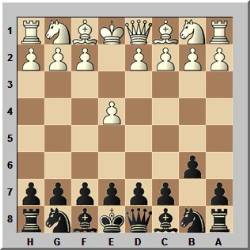
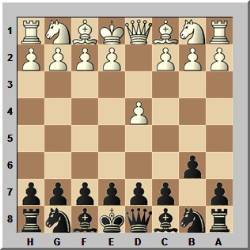
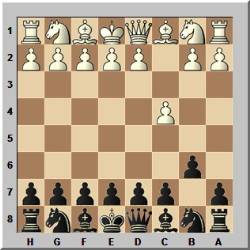
This system is useful to throw White out of prepared opening lines. These guys are the ones who have memorized countless opening lines, remember?
For example they know: The Spanish, The Italien, The French, The Scotch etc. There are a lot of experts on that.:)
If it can surprize e4 players, so I thought, maybe the b6 system can be used against 1.d4 players as well, and maybe against 1.c4 players too, and maybe against 1.f4 players and 1.b4 players and the rest of them.
And in fact, it can!
But, of course, you will play against a lot of different structures and, by the way, you still have to learn chess. But you dont have to memorize countless opening lines as before, because you play chess in a more positional way. And you don’t run into home prepared lines by others.
As I said before, chess is far too complex and no matter how far you reduce the opening, the game branches out after the opening is finished and then the real chess struggle begins.:)
So Black was covered and now the question was, can White do likewise and play first move 1.b3?
The answer is, yes! This system for White players is known under a different name, of course, namely b3 Opening, or the Larsen Attack, or Larsen’s Opening, or Nimzowitsch–Larsen Attack, or Nimzo–Larsen Attack, or Queen’s Fianchetto Opening or Owen’s Opening. Just different names for the same thing.
However, Grandmaster Bent Larsen used 1.b3 a long time ago with success, when he was still young.
You can study the Nimzovich-Larsen Attack here. We are not concerned with it on this page.
———————————
You are BLACK
Lets start now to learn more about the b6 system for Black.
It is pretty clearcut and straightforward, so it seems. This is good. I like straightforward things! 🙂
In short, you attack the square e4 with your bishop at b7 and your knight f6, followed by an attack against the defender of e4, the white knight c3. White is forced to protect his e-pawn move by move or he will simply lose it.
If White plays a different setup, you adjust somewhat, but you stick to the same basic concept.
You see the basic standard position below.
1.e4 b6 2.d4 Bb7 3.Nc3 e6 4.Nf3 Bb4, now White has to protect e4 or you capture the e4-pawn. 5.Bd3
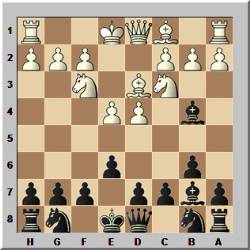
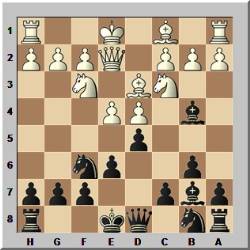
5…Nf6 6.Qe2 And now you strike with 6…d5! and attack the e-pawn again…See Diagram on the right
Now White plays 7. e5 or trades pawns 7. exd
However, below you can see how the legendary chess genius Paul Morphy lost a game against the inventor of the b6-system John Owens.
Replay b6 Defense Chess Games
Flip Board: Press F-Key (or click e7 or d2 on top) Select a game: Click on grey bar
Elements of the B6-System
Study the EARLY WHITE BISHOP Setup
 Sick of Losing at Chess? Get Chess Courses from a Grandmaster! HUGE Discount! Click here!
Sick of Losing at Chess? Get Chess Courses from a Grandmaster! HUGE Discount! Click here!Get Chess Course -Beginners Package- from a Grandmaster! Huge Discount!
Privacy Policy Impressum/Disclosure Disclaimer Donate
© 2008- www.Expert-Chess-Strategies.com
